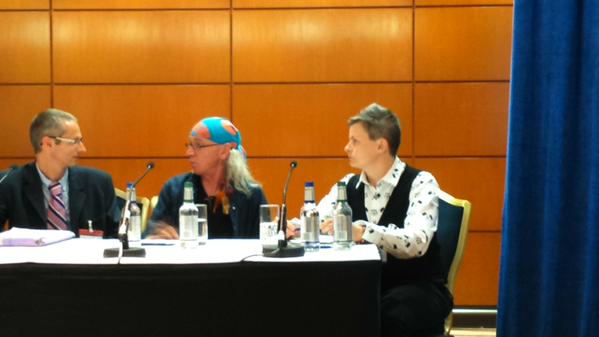Compassion is the best medicine
Word of mouth has obviously spread as I was personally requested to speak at the recent NHS England – Compassion in Health and the Justice System conference recently, which made me feel very flattered! Revolving Doors’ National Service User Forum has gone from strength to strength and we’re speaking to all levels in society: politicians, senior police officers, NHS England heads, and local councils.
The audience was made up of strategic and frontline healthcare professionals, with academics, public servants and police officers attending too. Other speakers included Lord Bradley, a senior member of the Royal College of Nursing, and a representative of the World Health Organisation.
As for me, I’m a member of Revolving Doors’ National Service User Forum, which is made up of people who have experience of multiple and complex needs. As a Forum member I have spoken to the Home Affairs Select Committee on mental health and policing, and co-delivered a workshop on Health and Justice Integration for NHS England. I’ve spoken at Scotland Yard to officers of all rank and I’ve advised new trial sites of liaison and diversion based on my lived experience.
What I spoke about: Compassion
All too often, compassion is non-existent, but stigma is always there. There’s a lot of negative language used, which we really need to push against. The language used by police officers I’ve encountered is terms like ‘nut nut’. The stigma is in A&E is there too. You go into A&E and see gurneys, oxygen marks etc. But there’s also a room with just a mattress reserved for the likes of me (people in mental health crisis). I’ve encountered doctors who’ve said ‘next time you try self-harming, try doing it from there to there’ (along with the relevant hand gesture). The lack of compassion displayed puts people off engaging in health services and even seeking help. For people in a police cell because of their mental health problems, a lack of compassion can make a bad situation worse.
What I think compassion looks like
It’s about the human touch. As I said at the conference, one police officer I met showed compassion by just telling me some inappropriate stories about pranks in the office. I thought ‘should you be telling me that?!’ but it showed genuine compassion. He took me out in the courtyard for a cigarette. His stories brought me back into the real world, brought me down to earth and felt genuine.
I also spoke about compassion in mental health hospitals. I remember one nurse starting and in her first week she had a look of hope. But she didn’t know what she was letting herself in for.
Healthcare professionals across the board, in prison, police cells and hospitals, aren’t always trained or prepared for their work. They need ongoing support, including peer-led training. When people are ill-trained and given a ‘baptism by fire’ whatever compassion they may have had has gone out the window. Stigma around mental health problems and self-harming trickles down to peer level, among alcoholics and drug users. If there’s no compassion at peer level you’re done for.

It was really empowering and I felt genuinely listened to. I wasn’t a service user that day; I was a peer on a panel with a member of the Royal College of Nursing, a senior nurse from Care UK and the deputy governor at Wormwood Scrubs. I felt that the stories I told were a wake-up call for the audience members, who genuinely wanted to make change. I’m confident that people will take on board what I said and hopefully the theme of compassion is on the agenda now. Coproduction & evolving the whole system through expertise by experience is the way forward.
If compassion was standard practice, would I have kept falling back into sections and being pushed through the system? I think not. I look forward to taking part in more of these events to keep pushing this message forward.

